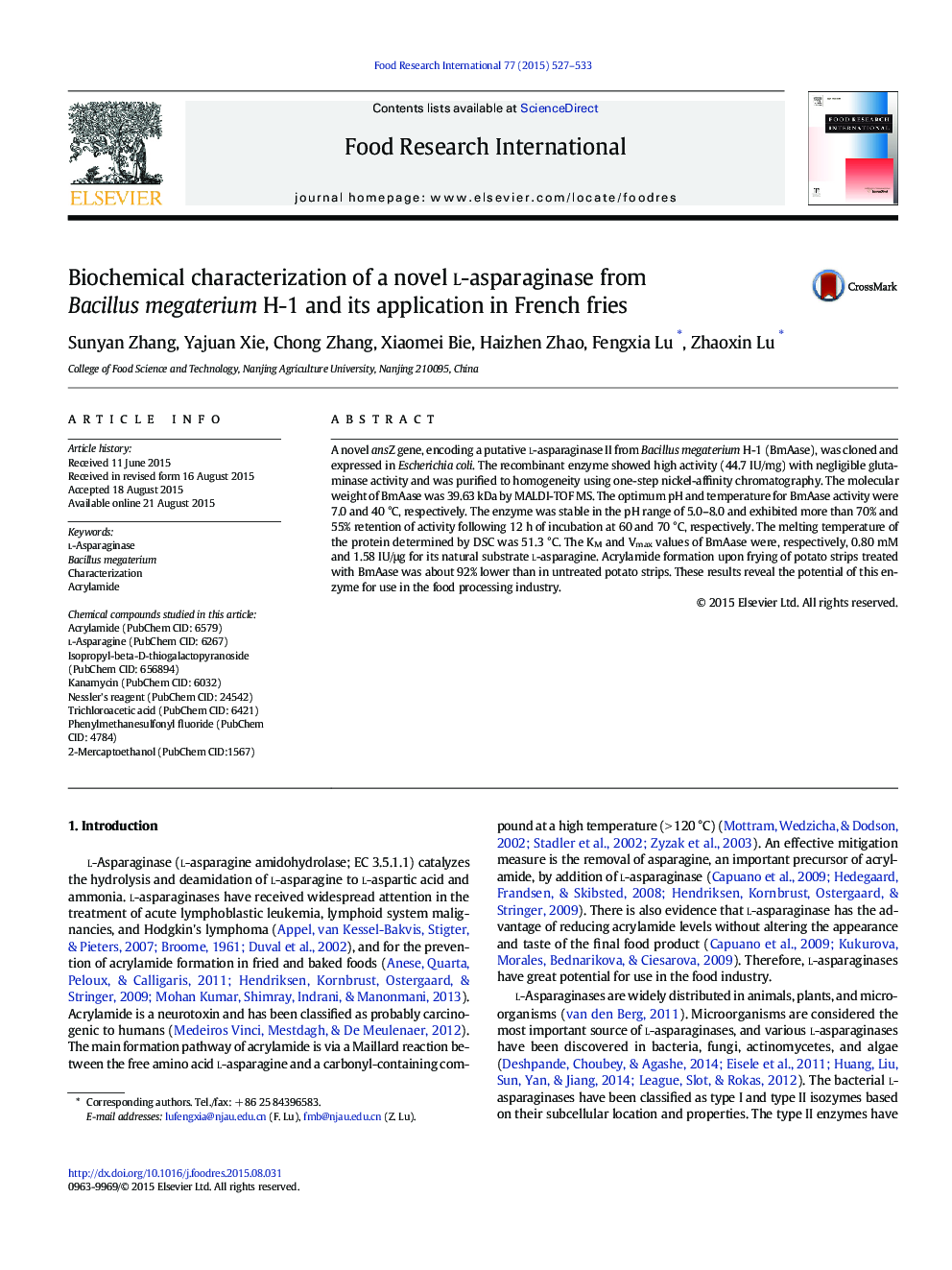| Article ID | Journal | Published Year | Pages | File Type |
|---|---|---|---|---|
| 4561373 | Food Research International | 2015 | 7 Pages |
•A novel ansZ gene encoding l-asparaginase from Bacillus megaterium H-1 (BmAase) was isolated and characterized.•BmAase showed highly specific activity across a wide pH range and significant temperature stability.•BmAase could reduce almost all amount of acrylamide formed during the frying process.
ABSTRACTA novel ansZ gene, encoding a putative l-asparaginase II from Bacillus megaterium H-1 (BmAase), was cloned and expressed in Escherichia coli. The recombinant enzyme showed high activity (44.7 IU/mg) with negligible glutaminase activity and was purified to homogeneity using one-step nickel-affinity chromatography. The molecular weight of BmAase was 39.63 kDa by MALDI-TOF MS. The optimum pH and temperature for BmAase activity were 7.0 and 40 °C, respectively. The enzyme was stable in the pH range of 5.0–8.0 and exhibited more than 70% and 55% retention of activity following 12 h of incubation at 60 and 70 °C, respectively. The melting temperature of the protein determined by DSC was 51.3 °C. The KM and Vmax values of BmAase were, respectively, 0.80 mM and 1.58 IU/μg for its natural substrate l-asparagine. Acrylamide formation upon frying of potato strips treated with BmAase was about 92% lower than in untreated potato strips. These results reveal the potential of this enzyme for use in the food processing industry.
